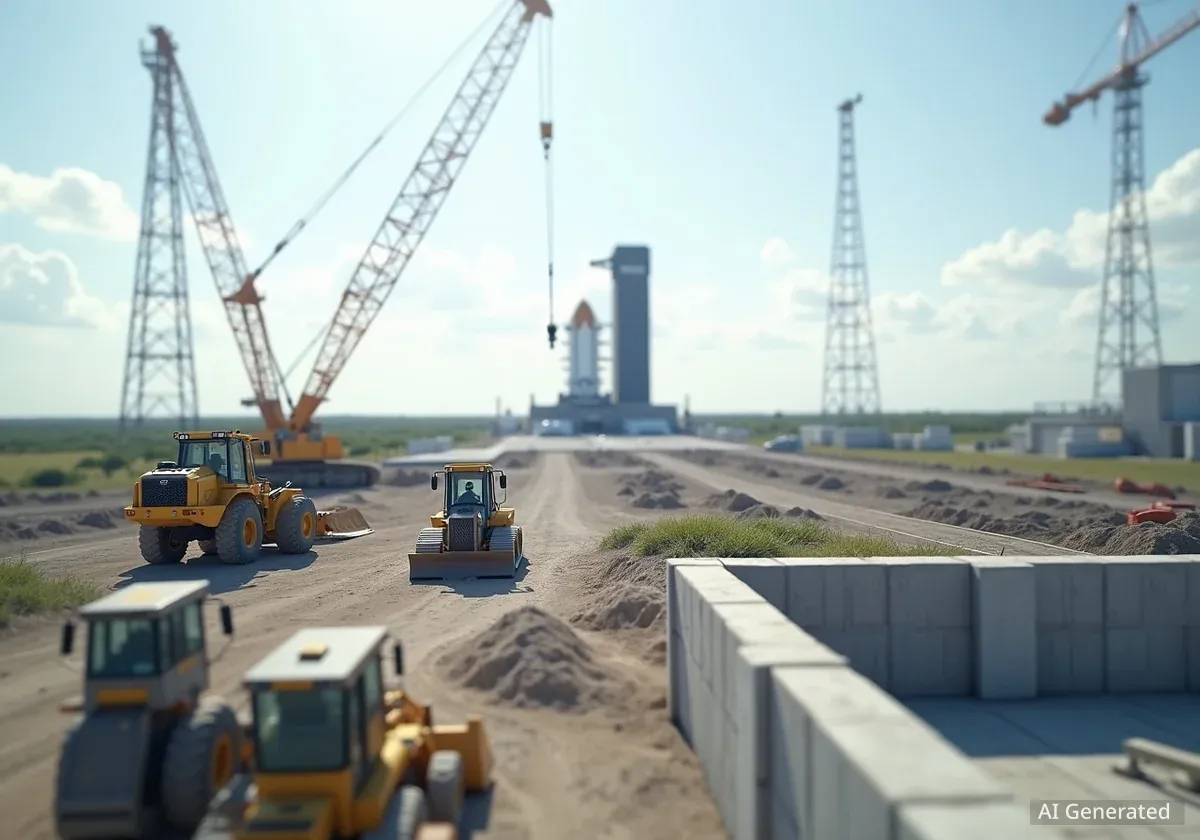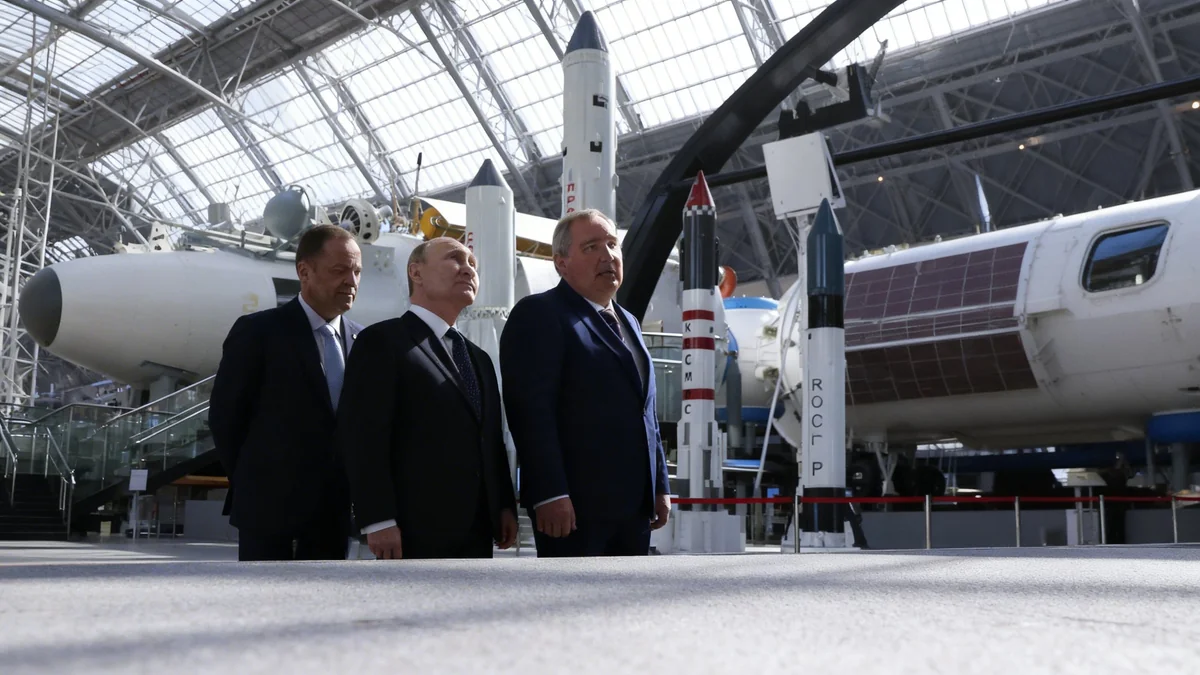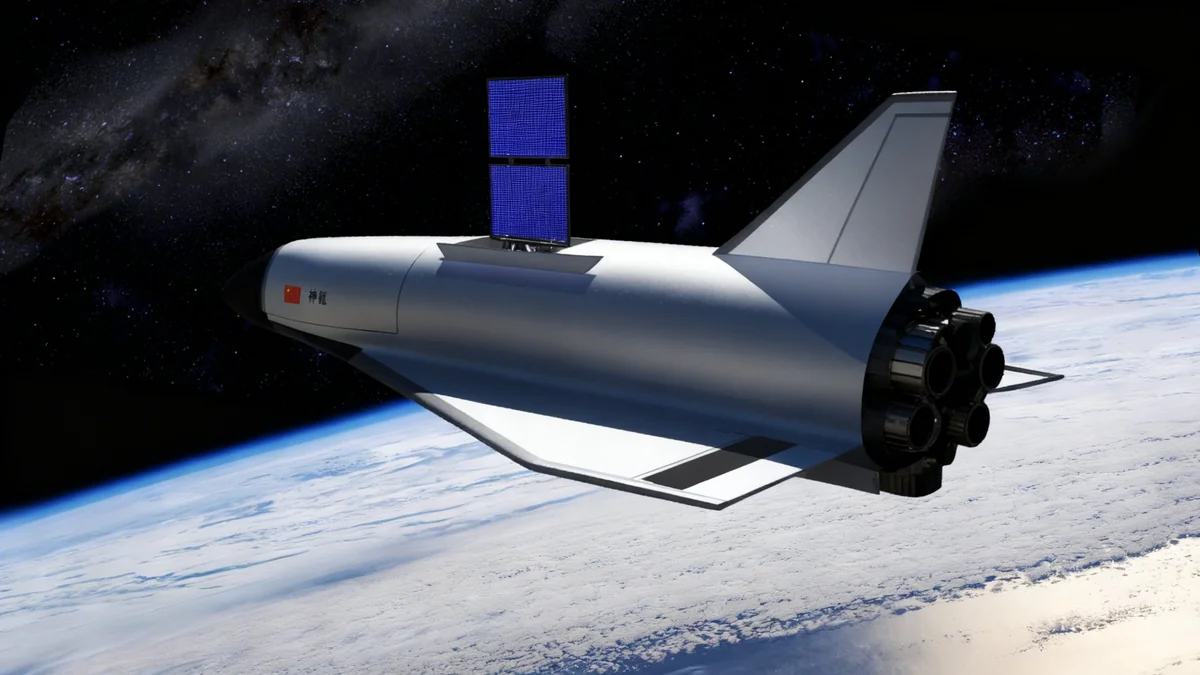The U.S. Space Force has awarded a significant contract to Blue Origin, the aerospace company founded by Jeff Bezos. The deal, valued at $78.25 million, is for the construction of a new payload processing facility at Cape Canaveral Space Force Station in Florida, with a target completion date of 2028.
This investment aims to expand the nation's capacity for preparing satellites and other space vehicles for launch, addressing a growing bottleneck in pre-flight operations. The project is structured as a public-private partnership, designed to support both national security and commercial space missions.
Key Takeaways
- Contract Value: Blue Origin will receive $78.25 million from the U.S. Space Force.
- Project Goal: To build a new payload processing facility at Cape Canaveral, Florida.
- Strategic Importance: The facility will increase the capacity to prepare satellites for launch, supporting a higher mission tempo.
- Completion Timeline: The new infrastructure is scheduled to be operational by 2028.
Addressing a Critical Infrastructure Need
The U.S. Space Force awarded the contract to the Kent, Washington-based company to directly address a growing challenge on Florida's Space Coast. While launch pads and ranges can handle an increasing number of flights, the specialized facilities for processing payloads have not kept pace.
These facilities, which include environmentally controlled cleanrooms, are essential for the final stages of satellite preparation. In these secure environments, payloads undergo final testing, fueling, and encapsulation into the rocket's fairing before being moved to the launch pad.
According to industry reports, the existing infrastructure has struggled to support the rising launch cadence from both government and commercial providers. The new facility is intended to alleviate this pressure and ensure smooth operations for future missions.
"This partnership will enhance Blue Origin’s capabilities to operate more efficiently and expand our capacity to support a higher launch cadence to meet customer needs," a Blue Origin spokesperson stated on October 7.
A Partnership for National and Commercial Spaceflight
The contract is part of the Space Force's Commercial Solutions Opening (CSO) program, which facilitates partnerships with private industry to develop necessary capabilities. This model allows for cost-sharing, making it a financially efficient approach for the government to expand its spaceport infrastructure.
Colonel Dan Highlander, Director of Operations Integration for Space System Command’s Assured Access to Space directorate, commented on the strategic value of the agreement.
"This second CSO award reflects our continued commitment to meet both national security and commercial launch requirements," said Col. Highlander. "The public-private partnership behind the new capacity enables us to cost-share with commercial industry to our mutual benefit."
What is Payload Processing?
Payload processing is a critical pre-launch phase where a satellite or other space vehicle is prepared for its mission. This involves a series of complex steps performed in a highly controlled environment:
- Final Testing: Engineers conduct the last functional checks of all systems.
- Fueling: Hazardous propellants are carefully loaded into the spacecraft's tanks.
- Integration: The payload is mounted onto its launch vehicle adapter.
- Encapsulation: The entire payload assembly is enclosed within the rocket's protective nose cone, known as a fairing.
This process can take weeks and requires specialized cleanroom facilities to prevent contamination that could jeopardize the mission.
Expanding Blue Origin's Florida Footprint
Blue Origin already has a substantial presence at Cape Canaveral, where it operates Launch Complex 36. This site is the designated launch pad for its heavy-lift New Glenn rocket, which conducted its initial flight in January 2025. The complex includes a large rocket integration building and existing processing areas.
The new payload facility will further enhance the company's operational capabilities on the Space Coast, allowing it to support a wider range of customers and missions. The facility is being designed to serve multiple launch providers, not just Blue Origin.
Recent Government Contracts for Blue Origin
This $78.25 million award is the second major federal contract secured by Blue Origin in recent weeks. In September 2025, NASA awarded the company a $190 million contract to develop and land a robotic science rover on the Moon's South Pole region. That mission is targeted for late 2027.
Broader Efforts to Boost U.S. Launch Capacity
The U.S. Space Force, established in 2019 to protect U.S. interests in space, has been actively working to upgrade launch infrastructure on both coasts. The Blue Origin contract mirrors a similar award made earlier in the year.
In April 2025, Astrotech Space Operations, a subsidiary of Lockheed Martin, received a $77.5 million contract for similar payload processing facility enhancements at Vandenberg Space Force Base in California. Together, these investments signal a coordinated effort to ensure the United States can maintain its leadership in space access for defense, civil, and commercial purposes.
By expanding ground infrastructure, the U.S. government and its commercial partners are preparing for a future with more frequent and complex missions launching from American soil.





